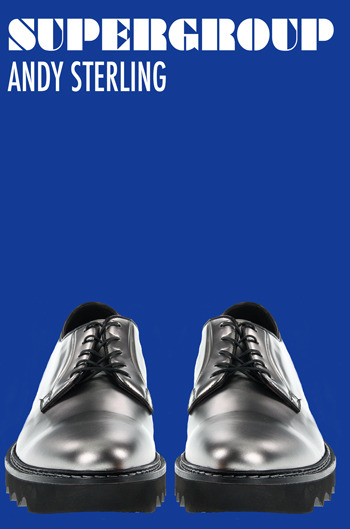Kenneth Goldsmith on The Wild World of Lulu
In the following post, Kenneth Goldsmith, author of Uncreative Writing: Managing Language in the Digital Age, explores the new publishing options open to poets and whether poetry still needs publishers:
Poetry is cunning. Eternally broke and without resources, it manages against all odds to keep producing daring and innovative works. At a time when few publishers would dare do a book of poetry for fear of losing their shirt, the most adventurous poets have left the building, migrating instead to print-on-demand systems. Poets can now produce works which would otherwise be impossible to publish by more conventional means and by posting them on Lulu, they get the added bonus of harnessing the site as a powerful distribution tool.
Here’s how it works. A young poet like Andy Sterling datamines a site like Discogs and harvests 400 pages’ worth of small-bit session players from long-forgotten 1970s LPs. He throws the whole thing into an InDesign document, slaps a snazzy cover on it, pumps it out as PDF, calls it Supergroup, and uploads it to Lulu, where you can have a physical book made of it for $13.38. But really, few are going to pay for it. Instead, they use the Lulu servers to snag the PDF, costing nobody anything. Lulu’s become poetry’s biggest advocates.
The two main sites for this sort of work being done by younger conceptual poets are Gauss PDF and the Troll Thread Collective. Created by poets for poets, they exploit free software, publishing and distribution systems to make their work. The work itself tends to push these limits as best exemplified by Chris Alexander’s McNugget, which is 528 pages’ worth of tweets that mention the word “McNugget”:
12 Feb Alaina VanDyke @LainsaMains Reply Retweet Favorite • Open I asked my dad for a 10 piece Chicken McNugget. He brings me that, plus a small fry and a fruit n yogurt parfait. That’s love ya’ll.
While this might be far from traditional notions of poetry, it’s right in line with much of the conceptual writing that’s been happening over the past decade in which writers, exploiting the cut and paste function of the computer, have been harvesting the internet for material, making books that are more about the act of collecting the information than the reading of them.
The ultimate Lulu work is called The Black Book by Jean Keller, which is a 740-page book consisting of nothing more than margin-to-margin black. As Keller eloquently puts it on the Lulu page:
Ink used for digital printing is one of the most precious substances in the world. A single gallon of ink costs over four thousand dollars and this is one reason why digitally printed books are so expensive
However, the price of a book is not calculated according to the amount of ink used in its production. For example, a Lulu book of blank pages costs an artist as much to produce as a book filled with text or large photographs. Furthermore, as the number of pages increases, the price of each page decreases. A book containing the maximum number of pages printed entirely in black ink therefore results in the lowest cost and maximum value for the artist.
Combining these two features, buyers of The Black Book can do so with the guarantee that they are getting the best possible value for their money.
He sells the book for $29.21. When I held a copy, the book was still wet and weighed a ton.
3 Responses
-
Pingback: Code—X is out! — Silvio Lorusso . com
Leave a Reply
You must be logged in to post a comment.



I used Lulu to publish a 3-volume set of my collected poems I wrote the past 25 years, and copies only get printed if someone buys one, and it is always available.
http://www.lulu.com/spotlight/angeliad
Now I am writing an epic which is up to 60,000 lines so far. I am trying to find a traditional publisher first, but will use Lulu if I get no offers.
I plan to try for a Guggenheim writing fellowship, but they do not accept for submission any self-published book. That is the only draw-back for self-publishing. Otherwise, it is a great idea.